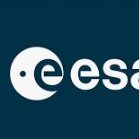Members Can Post Anonymously On This Site
VSFB achieves historic milestone with 51 launches in 2024
-
Similar Topics
-
By European Space Agency
Video: 00:02:01 ESA’s state-of-the-art Biomass satellite has launched aboard a Vega-C rocket from Europe’s Spaceport in French Guiana. The rocket lifted off on 29 April 2025 at 11:15 CEST (06:15 local time).
In orbit, this latest Earth Explorer mission will provide vital insights into the health and dynamics of the world’s forests, revealing how they are changing over time and, critically, enhancing our understanding of their role in the global carbon cycle. It is the first satellite to carry a fully polarimetric P-band synthetic aperture radar for interferometric imaging. Thanks to the long wavelength of P-band, around 70 cm, the radar signal can slice through the whole forest layer to measure the ‘biomass’, meaning the woody trunks, branches and stems, which is where trees store most of their carbon.
Vega-C is the evolution of the Vega family of rockets and delivers increased performance, greater payload volume and improved competitiveness.
View the full article
-
By Space Force
USSF and NASA successfully launched the STP-H10 mission carrying six experiments as a part of a resupply mission to the ISS
View the full article
-
By Space Force
USSF and NASA successfully launched the STP-H10 mission carrying six experiments as a part of a resupply mission to the ISS
View the full article
-
By Space Force
The 2nd Space Launch Squadron at Vandenberg SFB is home to the Space Cowboys, which provide the Department of Defense’s only expeditionary space launch and transport capability.
View the full article
-
By NASA
1 min read
Preparations for Next Moonwalk Simulations Underway (and Underwater)
Back to ECF Home
Transformational Advanced Energetic Propulsion
Omid Beik
Colorado School of Mines
Development of a MW-Scale High-Voltage Multiphase Dual-Rotor Generator and Rectifier for a PMAD in an NEP System Ognjen Ilic
University of Minnesota
Concept Demonstration of Directed Energy Propulsion with Metasurface Lightsails Kenshiro Oguri
Purdue University
Origami-inspired Diffractive Sail for Directed Energy Propulsion Thomas Underwood
University of Texas, Austin
Stabilized Z-Pinch Fusion Driven Electromagnetic Propulsion Power Systems to Enable Small System Operations in Permanently Shadowed Lunar Regions
Manan Arya
Stanford University
Lightweight Deployable Solar Reflectors Jessica Boles
University of California, Berkeley
Piezoelectric-Based Power Conversion for Lunar Surface Systems Christopher McGuirk
Colorado School of Mines
Power on the Dark Side: Stimulus-Responsive Adsorbents for Low-Energy Controlled Storage and Delivery of Low Boiling Fuels to Mobile Assets in Permanently Shaded Regions Shuolong Yang
University of Chicago
Developing Oxychalcogenide Membranes for Superconducting Power Transmission
View the full article
-
-
Check out these Videos




Recommended Posts
Join the conversation
You can post now and register later. If you have an account, sign in now to post with your account.
Note: Your post will require moderator approval before it will be visible.